While living in an RV this year, one of my biggest concerns for healthy living was access to fresh filtered water to drink. At home, you have one water source, and generally one faucet from which all of your water is brought into your home. In an RV, you’re attaching to a different water source every time you move. So I was very determined to find the best RV water filters (especially after our indoor air quality disaster).
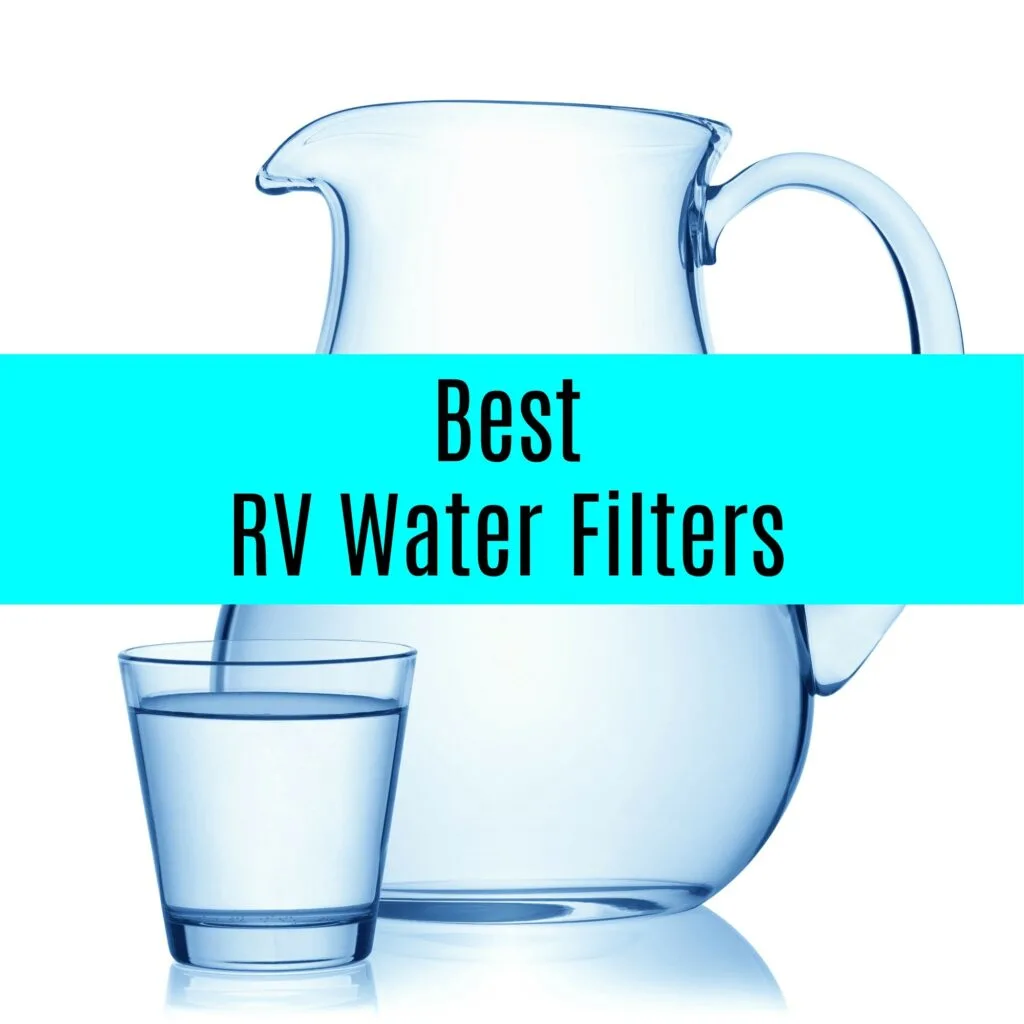
RV Water Sources
In an RV, your water sources are constantly changing with each new site that you visit. There is not a solid, standard pipe under your house coming from your local water treatment plant. Instead, you’re hooking up a hose to a spigot that is at an RV site or at a fresh water fill station.
Which means the water quality changes at every single location you stay at. Even if you’re someone who looks at their community’s water quality reports (good for you!), you’re not going to do it for every place you stay when traveling in an RV.
Why does it matter? Because different community’s water can contain varying levels of all kinds of contaminants, from lead to chlorine to fluoride to bacterial growth. There are limits set by the EPA of what the potable (drinking) water SHOULD be nationwide. However, those levels can vary widely in actual water samples (even going above the federal set limits, in some cases). For me, I prefer to consume the LEAST amount of any of those undesirable things in my water, no matter what the government has set at a safe level. So I try to filter out as much as I can.
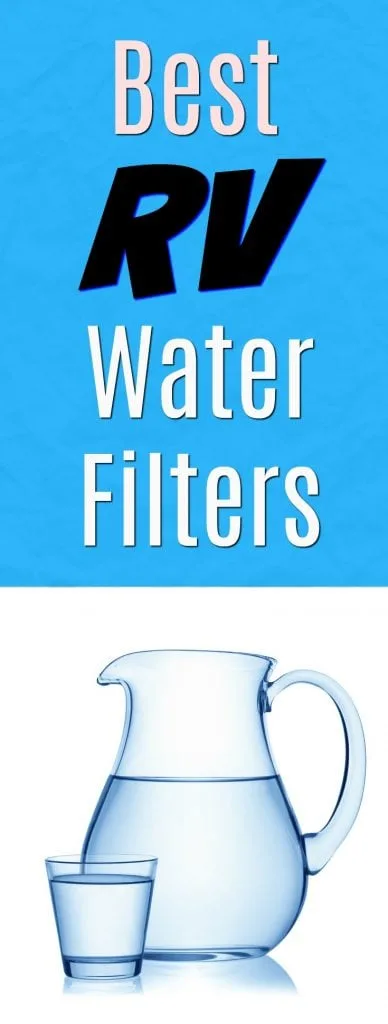
Plus, your water quality can be compromised by your storage tanks and hoses.
With so many ways that your water quality can change and be impacted, it’s important than to have great RV water filters to get rid of as many impurities as possible.
The Right Hose for an RV
Drinking water comes into an RV through the hose that you hook up to the spigot at your site. It’s like hooking up an outdoor hose to a spigot to water your garden.
So the quality of the hose that you choose is your first line of defense in filtering water in your RV.
Not all hoses are the same. Some hoses are specifically created for drinking water. Others don’t have the health-based requirements for drinking water. One of the biggest concerns is getting a hose that’s lead-free, because lead can have serious health effects on children, adults and pets.
Be sure to get a lead free water hose specifically meant for an RV – and get it long enough to reach spigots that might be located at the end of a site and not near your hookups. You won’t be disappointed in buying the longer hose.
Don’t forget the water pressure regulator, too. It will save your hose – and your plumbing – from sudden high pressure spikes that can occur in RV parks.
Choosing a Hose Water Filter for an RV
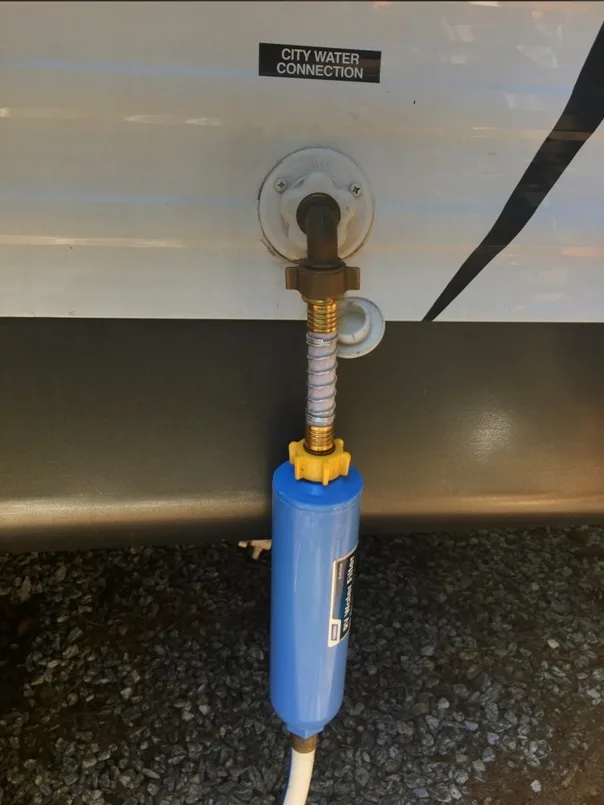
For healthy water in an RV, your next step is to attach a hose water filter which will be located outside of your RV. It’s your first defense on ridding impurities from your water.
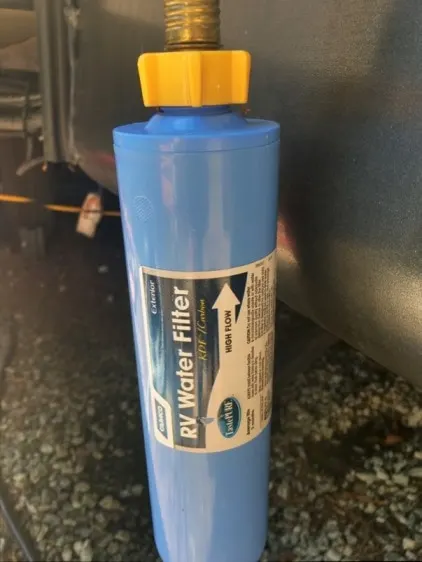
Hose RV water filters are attached to your drinking water hose. We use this carbon filter with a 100 micron fiber barrier. It’s a first step in reducing chlorine, bad taste, sediment and large particles. Plus, it has a KDF filter which inhibits bacteria growth. And that’s a great thing.
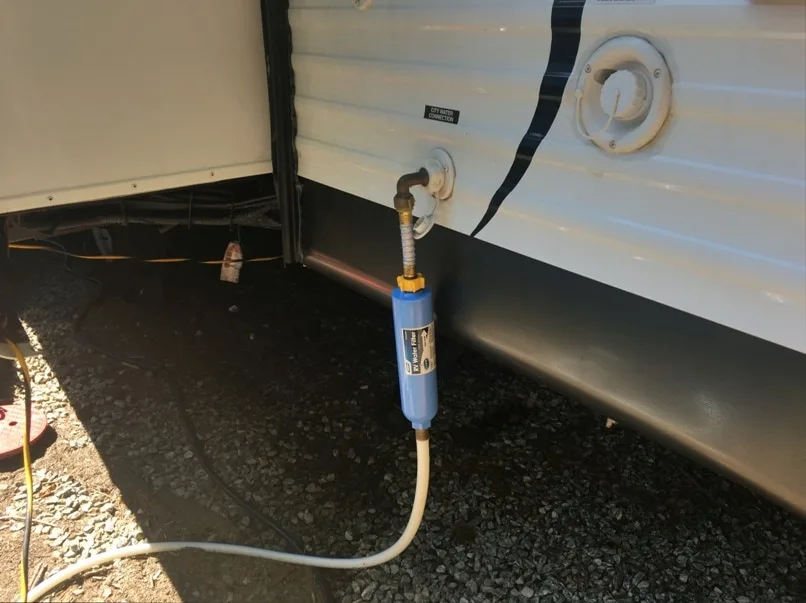
Related Posts:
- Best RV Mattresses
- How to DIY a Custom RV Mattress
- RV Mattress Hack for a More Comfortable Bed
- Best Wide Mouth Water Bottles
RV Water Filters for Drinking Water
The more steps you have to filter water, the more stuff you’re going to catch, especially when the filters get progressively smaller and smaller to capture smaller impurities and potential toxins. So don’t stop at just one RV water filter outside.
Relying on bottled water as your primary source of drinking water is expensive, not practical and not any healthier than tap water.
Did you know, bottled water is not regulated like tap water? Nope. In fact, bottled water could just be tap water put into bottles. Let me make that clear. Tap water coming from sources intended to go into your home (or RV) is held to a different standard (by the EPA) than the bottled water industry (which is regulated by the FDA).
So, buying those 24-pack cases of water at every grocery store you stop at across America and lugging that extra water weight while driving really costs a lot of money.
Why not invest in great RV water filters for fresh drinking water, instead? Here are my top picks:
ZeroWater Water Filter
Want a standard pitcher that goes in your refrigerator? We hunted high and low to find something that would fit in our tiny RV refrigerator, which doesn’t have a lot of room or height. What we found worked best in our Dometic RV refrigerator is the ZeroWater 8 Cup Pitcher. It’s designed to remove lead and chromium, and gets ride of 99.6% of dissolved solids through a five-step filtration process.
We had a ZeroWater Water Pitcher at home before we started RVing. It came in a bigger size. We were really happy with it and the test results that we found comparing our tap water and the filtered water.
GoPure Water Filter
If you don’t have the room for a water pitcher (which I TOTALLY UNDERSTAND!) or you want to customize the type of pitcher that you use (for instance, you want glass and not plastic), then a GoPure water purifier makes perfect sense.
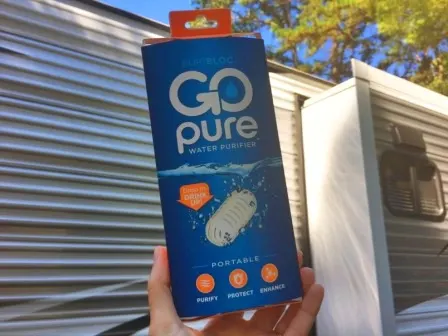
This ceramic filter isn’t attached to faucet or a pitcher. It’s a small water purification pod that can be inserted in any pitcher, coffee maker, bottle, water tank (3 liters or less), or glass. Which is great when you might have a small sink faucet and no room to attach a filter or get a pitcher underneath the faucet to fill it.
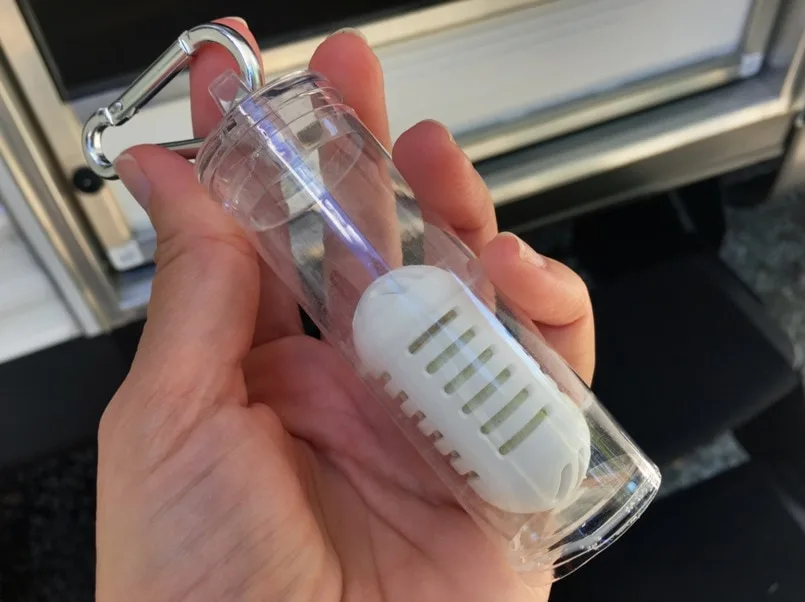
GoPure is a great idea for extra water purification in small spaces. The tiny, palm-size device is best when left in water, but can be stored in its storage container. You can remove the PuriBloc GoPure and let it dry out and then it can be used again.
Berkey Water Filters
While we haven’t used the Berkey Water Filters in our RV, there are several RVing YouTubers who do and rave about them (most notably We’re the Russos). I wouldn’t want to have to secure the Berkey water filter or find a place to store it while traveling, and I certainly don’t have any counter space to devote to one. Yet, may RVers do use the Berkey water filter system which has additional filters for fluoride.
Do you RV? What’s the best RV water filter that you’d suggest?
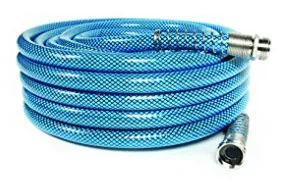
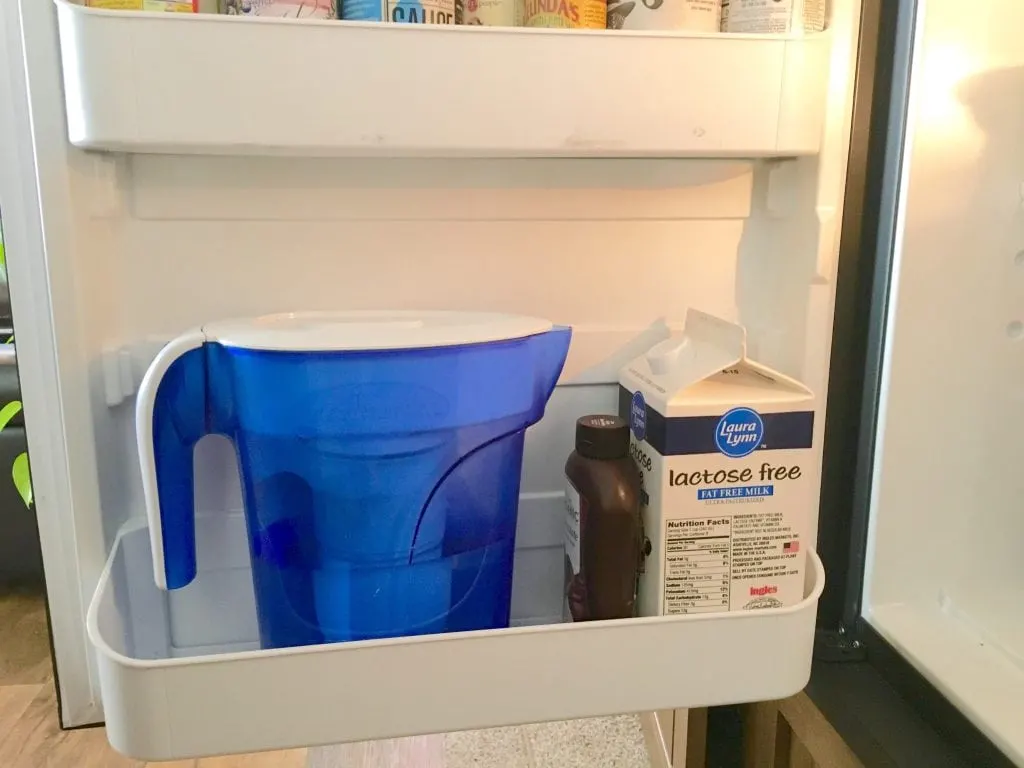
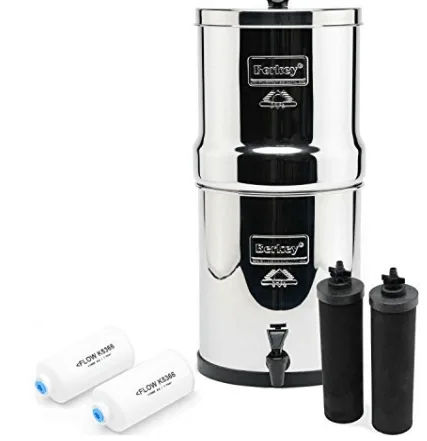
FZN
Thursday 5th of October 2017
Some great ideas here, a good step towards "green" living. The next step: renewable energy to save our planet!